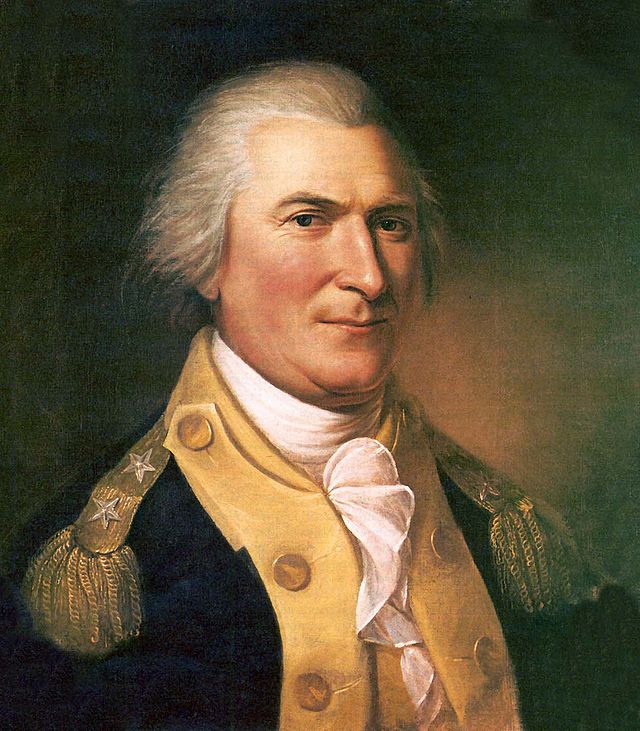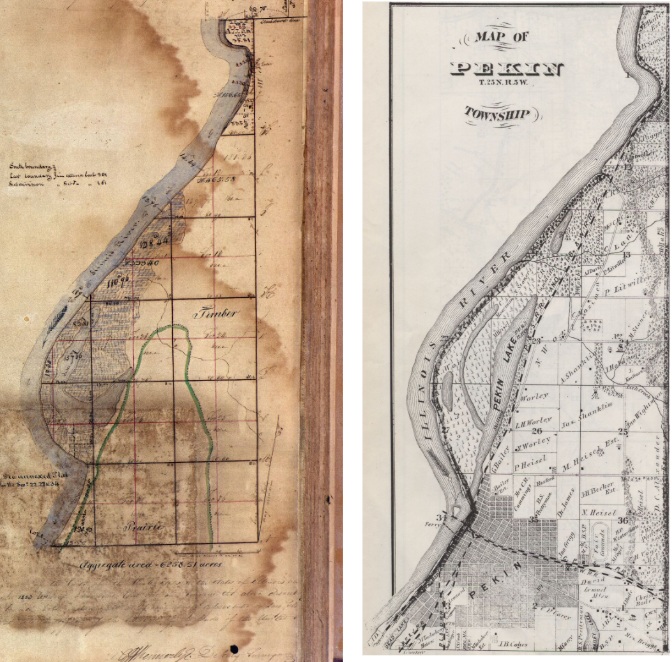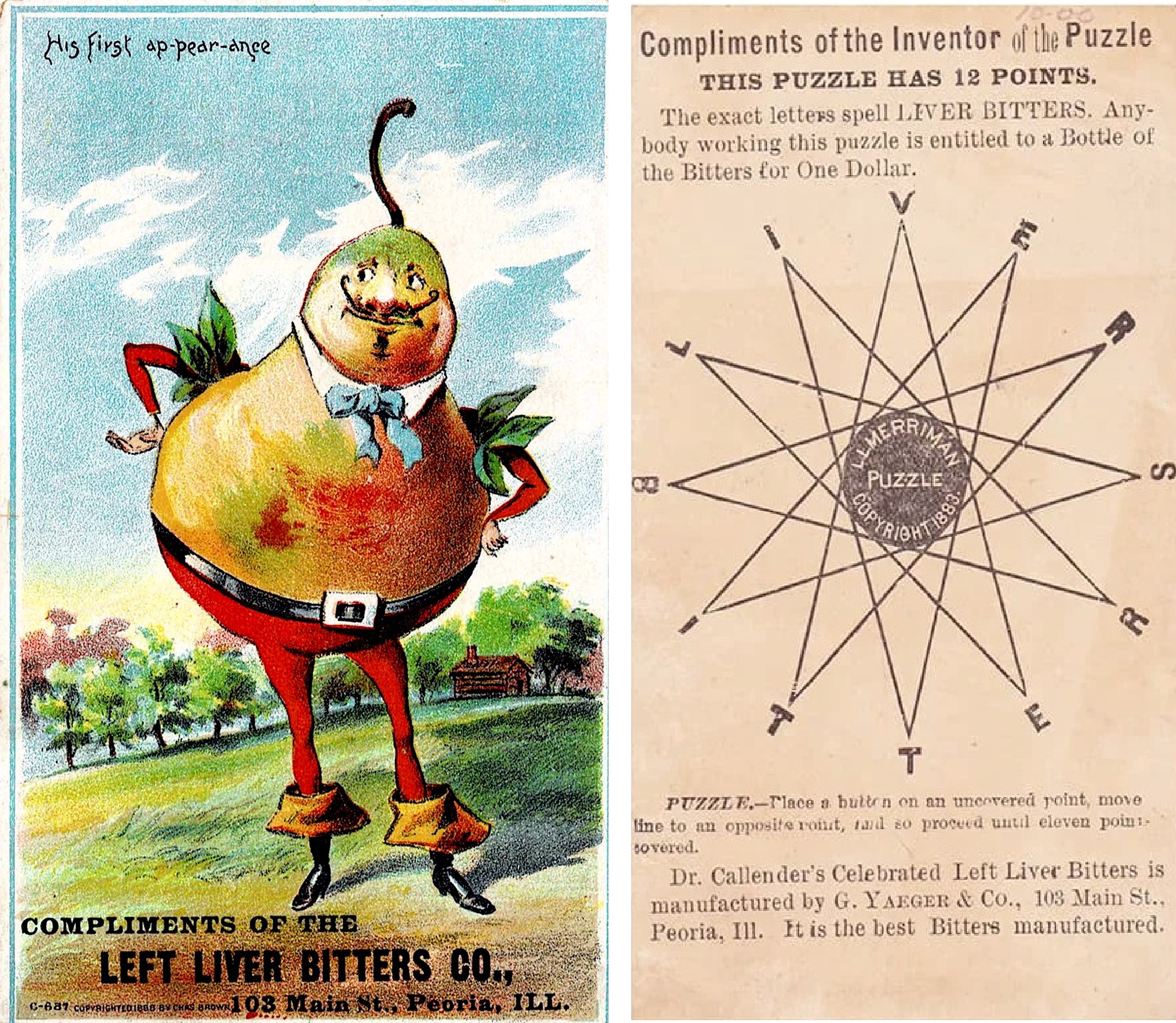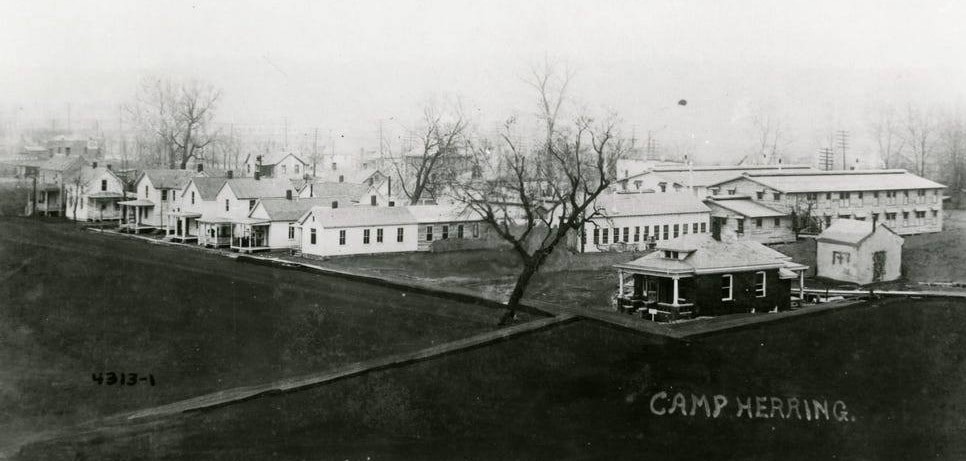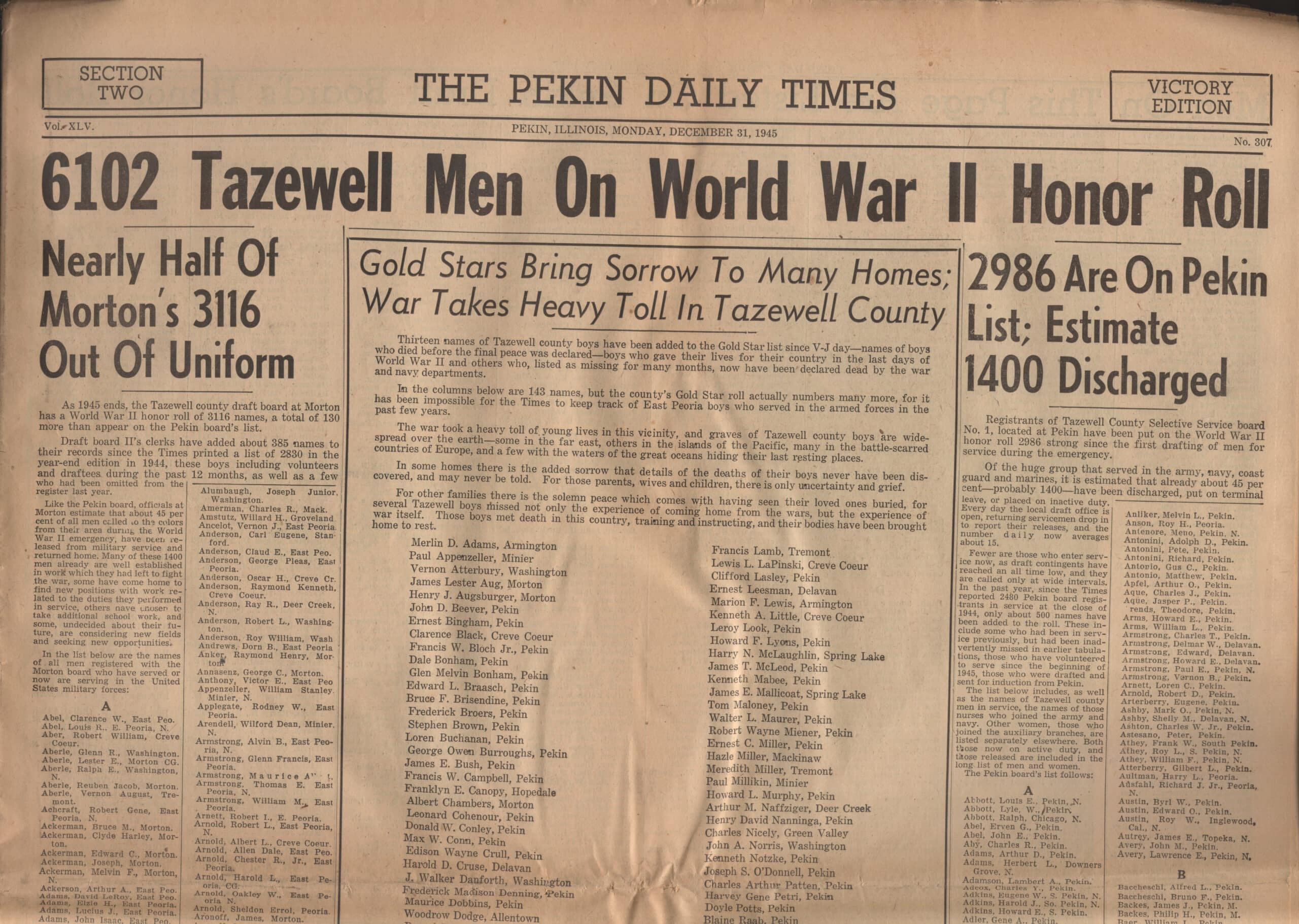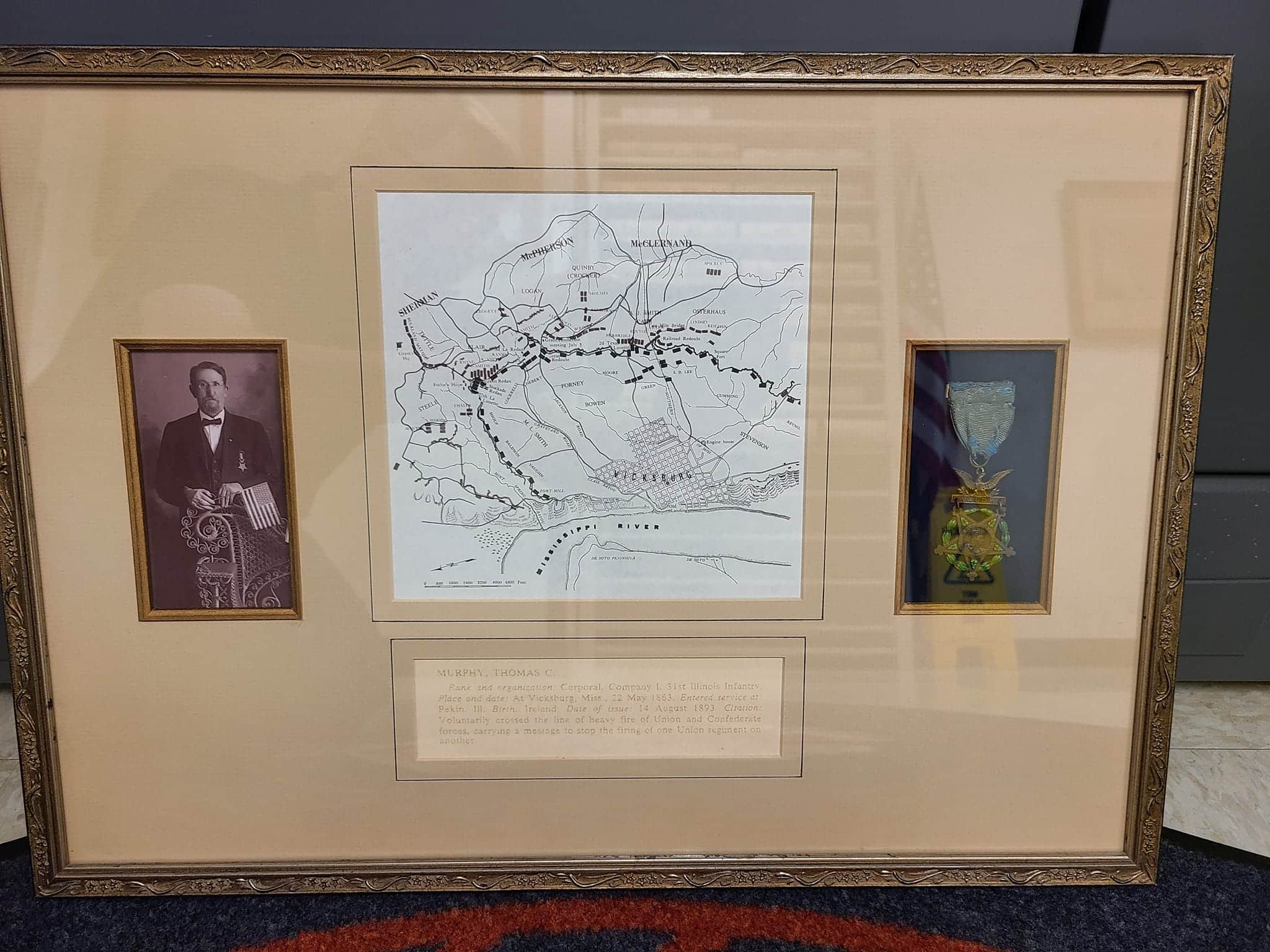This is a reprint of a “From the Local History Room” column that first appeared in March 2014, before the launch of this weblog.
About 14 years ago, Pekin Public Library Reference Librarian Laurie Hartshorn collected and compiled the stories and recollections of 16 local women who had lived through the years some eight decades ago when the United States shifted to a total war footing in order to stop the genocidal imperialist plans of Nazi Germany, Fascist Italy and the Empire of Japan.
Some years ago, retired NBC anchorman Tom Brokaw dubbed the Americans of that time – both those who were sent off to war and those who manned “the home front” – “The Greatest Generation,” so the obvious title for Hartshorn’s 32-page collection of memories and anecdotes was “Women of the Greatest Generation Tell Their Stories.” It’s one of the many works on Pekin and Tazewell County history included in the library’s Local History Room collection.
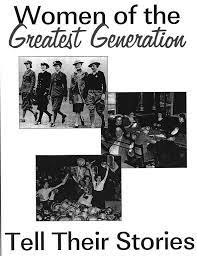
In brief introductory remarks, Hartshorn explains the background of the project. “In September, 2006, a remarkable group of women began meeting to discuss, share, and write about their experience of being on the home front during World War II. They were children, students, wives, mothers, and workers during those intense war years. Under the guidance of a skilled facilitator, Dr. Jill Bean, they shared their own unique stories as well as their experiences with common challenges such as rationing, victory gardens, single parenting, military service, and supporting the troops.”
The women who participated in this project were Doris Barding, Sandy Callahan, Lorraine Hartwell, Pat Frye, Margaret Lowman, Phyllis Mace, Jo Maddox, Mildred Maxey, Jo Rockhill, Ellen Paullin, Marge Shepler, Joan Smith, Ruth Williams, Kathryn Wolfer, Kathleen Woodley and Enid Woolsey. Following are a few selections of their memories.
At the time of Japan’s sneak attack on Pearl Harbor on Dec. 7, 1941, the participants in this project were ages 3, 11, 14, 15, 18, 21 and 22. They said they remembered hearing the news:
“From my parents on Sunday – the tone of the town was very somber. Disbelief was evident by everyone’s actions”
“The next day at school – everyone was talking about Pearl Harbor”
“On the radio”
“Seeing it over and over on the newsreels at the movie theatre in grayish black and white – no color film”
“After church”
“We had no radio, but one of my older brothers came out to tell us. Since another of my brothers worked there, we were all worried about how he was. He actually was on his way home from work, so wasn’t hurt.”
In recalling how the Pearl Harbor attack changed things, or for whom it changed things the most memorably, the women said:
“My dad – he joined the U.S. Army Corps of Civil Engineers. One of my more vivid memories was the brown out and black out curtains that were used to block interior light from being sighted by airplanes. One night I was very frightened that my mother’s burning cigarette would somehow be seen through all these curtains and that we would be bombed by the Japanese!”
“My oldest brothers aged 13 and 15. They were asked to help with the farmer’s harvest the following fall, as many of the young men were elected to enlist, leaving a shortage of extra farm workers – many of my relatives were farmers.”
“My dad – because he farmed, dad got extra gas for the tractor, etc. He had to use rationing coupons for our car. . . .”
“All of us had to adjust in some way. One thing I could remember is that our family could no longer ride out to Powerton with my dad when he was called back. Only authorized personnel could go through the gates. My mother took a Red Cross course. My brother was too young – freshman in high school. Later, after one semester of college, he was in the army and sent to Korea.”
“My sisters – because their husbands were in the Army.”
“My brother – he was married and worked for Chevrolet Company. He was drafted and assigned to the Air Corps in Colorado Springs. My sister worked at the small arms plant in St. Louis. Another brother-in-law was in the Air Force and went to Boise, Idaho and then went to the Aleutians.”
At the end of this book is an essay written by the projector’s facilitator Dr. Jill Bean. In the essay, she assumes the collective voice of the 16 women who participated, writing as if she were all of them at once. Summing up their experiences, Bean writes:
“My life was changed in those ten years. I’m really seeing just how much now. I still don’t think I’d call myself the Greatest from that generation because there were so many war heroes who deserve that title. But that woman who came to listen to our stories – that’s what she calls us – The Greatest Generation. The women who stayed home and held our community together while the soldiers were away. She says that without us sharing our stories about those war years, she just wouldn’t be the same. And after today, I think maybe she’s right.”




